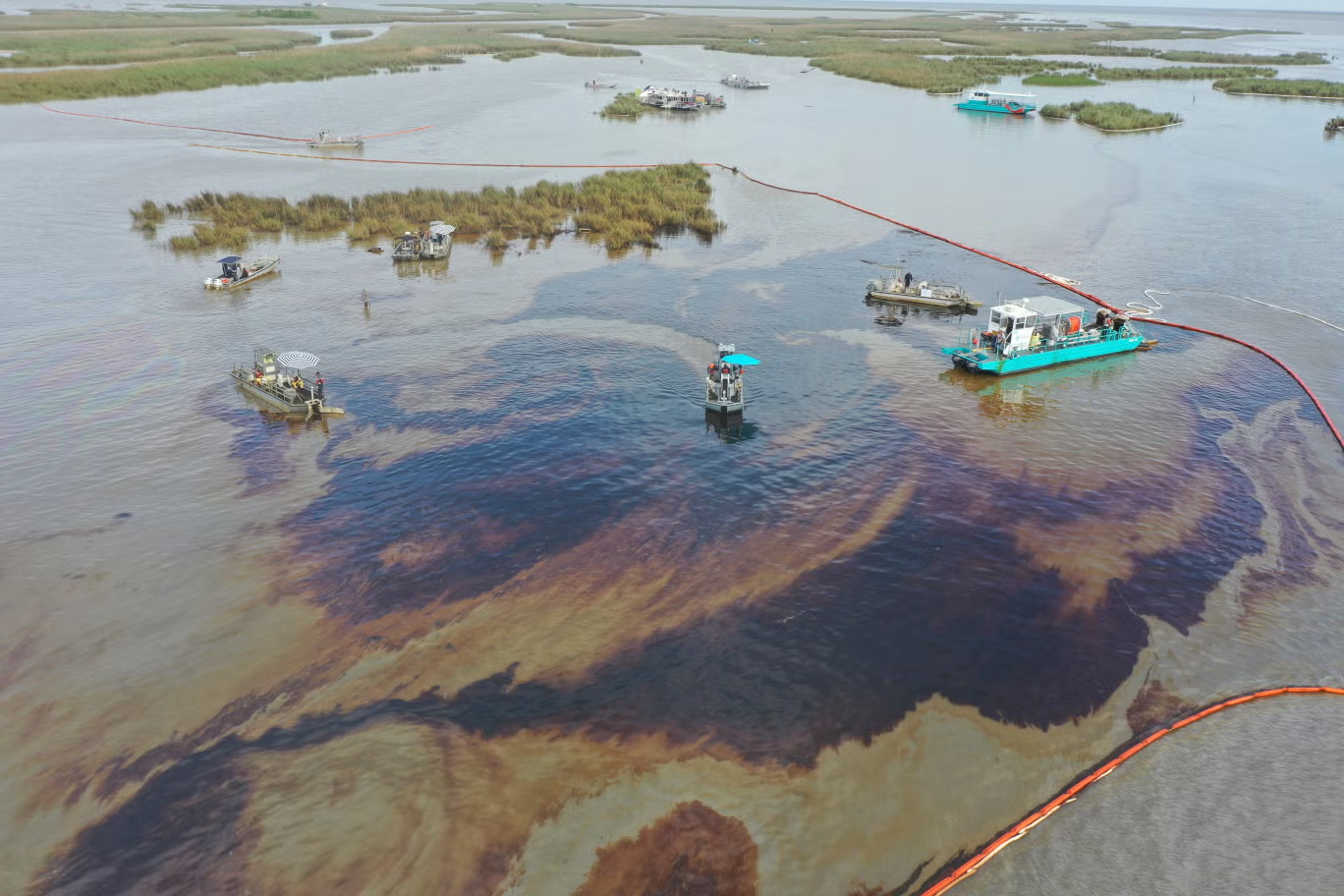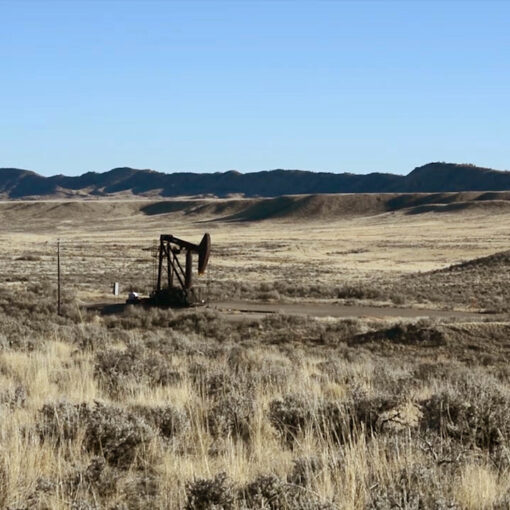 In U.S. coastal and offshore waters, particularly in the Gulf of Mexico, tens of thousands of oil and gas wells pose a growing environmental and financial liability. Of these, more than 7,300 offshore wells remain idled and await decommissioning, which could cost as much as $70 billion. Without cleanup, these wells risk becoming environmental hazards as their structural components degrade over time. Although operators are legally required under state and federal laws to decommission wells and restore sites, enforcement has been inconsistent. Financial instability in the oil and gas sector, coupled with industry bankruptcies, has exposed significant flaws in current regulations.
In U.S. coastal and offshore waters, particularly in the Gulf of Mexico, tens of thousands of oil and gas wells pose a growing environmental and financial liability. Of these, more than 7,300 offshore wells remain idled and await decommissioning, which could cost as much as $70 billion. Without cleanup, these wells risk becoming environmental hazards as their structural components degrade over time. Although operators are legally required under state and federal laws to decommission wells and restore sites, enforcement has been inconsistent. Financial instability in the oil and gas sector, coupled with industry bankruptcies, has exposed significant flaws in current regulations.
Against this background, on May 2, 2025, Ocean Conservancy and the Sabin Center for Climate Change Law hosted a workshop at Columbia Law School on offshore oil and gas decommissioning in the United States. The overarching goal of the workshop was to bring together offshore law and policy experts to outline a research and policy agenda for offshore decommissioning. Within this broad goal, we sought to (1) identify key opportunities to reform offshore decommissioning law in the United States, both in the short term and over the next decade, (2) identify knowledge gaps and highlight areas for future research, and (3) begin to build interdisciplinary connections between those working on issues related to offshore decommissioning. No attempt was made to reach group consensus on particular issues and no consensus was reached. Nevertheless, the discussions highlight areas for further research, action, and advocacy and non-participants alike.
A report summarizing the workshop discussions can be found here. As explained in the report, the workshop was divided into five thematic sessions:
(1) Decommissioning Economics and Incentives. This session focused on the political and financial economics of decommissioning, and explored ways in which decommissioning rules could be restructured or modified to shift incentives. Discussions centered around the “industry playbook” whereby oil and gas companies seek to reduce the present value of their decommissioning debts by delaying them as long as possible, to transfer assets (and their accompanying liabilities) to new owners, and ultimately to defer their liabilities until they so swamp corporate assets that the companies have no choice but to declare bankruptcy and default on their environmental debts. Companies taking advantage of these economic “tricks”, combined with limited regulatory oversight, have been able to systematically shift the costs of decommissioning onto public funds.
(2) Explaining Decommissioning Delays: Good and Bad Excuses. The second session laid the groundwork for a pro-environmental dialogue and research agenda that will allow advocates, courts, and regulators to distinguish legitimate reasons for delaying decommissioning from pretextual ones. The session focused on artificial reefing of offshore oil and gas facilities and reusing those facilities for sub-seabed carbon storage. While both of these could have benefits, they also pose risks. Some workshop participants expressed concerned that they potentially could be co-opted by oil and gas companies seeking to avoid decommissioning obligations and there was broad agreement that clear standards for reuse of infrastructure are needed.
(3) Private Litigation around Offshore Decommissioning. The third session explored the role that litigation currently plays, and may play in the future, in strengthening decommissioning laws and ensuring that those laws are both followed by offshore companies and enforced by offshore regulators. While there has been relatively limited litigation aimed at offshore decommissioning, both federal law and private law may be valid strategies for hastening or enforcing decommissioning obligations.
(4) Reforming Federal Decommissioning Law. The fourth session looked at avenues to reform federal decommissioning law. Much of this conversation focused on reforming financial assurance, where participants suggested reforms such as integrating decommissioning costs directly into the terms of their leases. The participants noted that improving federal decommissioning law may have bipartisan support, and lawmakers may be interested in addressing idled offshore infrastructure if the issue became more salient to them.
(5) Decommissioning Law and Policy in the States. The final session concluded with a discussion of decommissioning law and policy in coastal states. States such as California have made inroads into effecting change through state legislation, which could in turn provide a model for state-level decommissioning laws. Participants also noted that there was a need to build state-level capacity to enforce decommissioning requirements.
The report details the comments made by participants during the workshop and summarizes the broad arguments that were discussed. This report can be found here.
Martin Lockman is the Climate Law Fellow at the Sabin Center for Climate Change Law
-
Martin Lockman
-
Martin Lockman
Romany Webb is a Research Scholar at Columbia Law School, Adjunct Associate Professor of Climate at Columbia Climate School, and Deputy Director of the Sabin Center for Climate Change Law.
-
Romany Webb
-
Romany Webb
-
Romany Webb
-
Romany Webb
-
Romany Webb
-
Romany Webb
-
Romany Webb
-
Romany Webb
-
Romany Webb
-
Romany Webb
-
Romany Webb
-
Romany Webb
-
Romany Webb
-
Romany Webb
-
Romany Webb
-
Romany Webb

Ashwin Murthy
Ashwin Murthy is the Negative Emissions Fellow at the Sabin Center for Climate Change Law.






